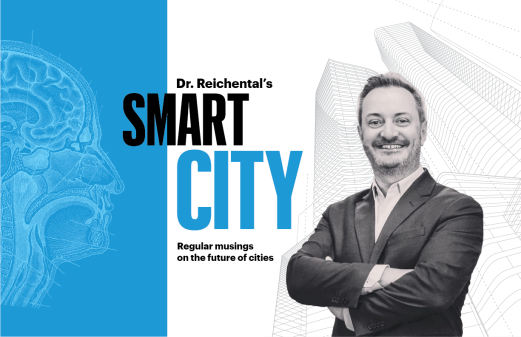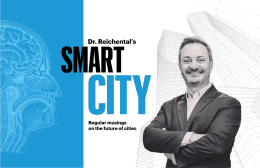New York City ranks 4th on global list for smart city readiness

In a study analyzing 10 of the world’s most advanced smart cities, New York ranked fourth for its readiness to embrace new technologies, just beneath Singapore in first, London in second, and Shanghai in third.
Professional services firm PricewaterhouseCoopers (PwC) released a Cities Readiness Index Thursday listing the cities most ready to embrace emerging technologies in the smart cities space. The analysis investigated social sectors where new technologies are transforming services like healthcare, education, security, transportation, energy and urban development. It also evaluated strategies and regulations, basic infrastructure and emerging infrastructure. The result is a set of examples and goal posts for cities follow when designing smart city strategies and deploying technology.
PwC’s Subhash Patil said the purpose of the research was give cities examples of how to improve service delivery and create a guide to confront universal civic challenges — problems like pollution, rising populations and energy conservation. Of the world’s total landmass, cities represent only two percent, yet contain 55 percent of the population. They demand more than 60 percent of the world’s energy, contribute 70 percent of the world’s waste, and create 70 percent of man-made greenhouse gases.
“Clearly, cities need to innovate solutions which will drive human civilization to a sustainable future, one which meets and exceeds climate change goals established [in the Paris Agreement] in 2016,” Patil said in a press release. “PwC’s ‘Cities Readiness Index’ tells us about what is done right in which global city and gives us benchmarks on core health parameters of a city.”
New York was the only U.S. city to make the list. According to the report, this was due to its investments in online services, cybersecurity, digital culture and its openness to adapt policies and processes. Continuing the digital progress of former Mayor Michael Bloomberg, Mayor Bill de Blasio has pushed for digital infrastructure and modern citizen services. The city is gradually installing a network of Wi-Fi kiosks across its five boroughs, blanketing residents with free internet. Last February, it announced construction on a civic tech hub to develop digital tools and generate technology startup growth. A virtual and augmented reality lab will open later this year. And since the beginning of the open data movement, the city has been a devoted practitioner.
In March, New York launch of the city’s Neighborhood Innovation Labs, a program that allows neighborhoods to test smart city technologies locally. Through this project, officials stressed the city’s ambition to bolster quality of life through the use of cutting-edge technologies.
“Rapid technological advances hold the potential to transform our cities, driving quality of life improvements for millions of New Yorkers,” New York City Chief Technology Officer Miguel Gamiño said in a statement. “Our challenge — and responsibility — is to ensure these technologies reach and benefit all New Yorkers, not merely a select few.”
Internationally, Singapore, which ranked first on the list, is setting a global pace under its Smart Nation plan, an initiative investing $2.9 billion, or roughly 1 percent of the country’s gross domestic product, on research and development. This work extends to a nationwide sensor network, an analytics department, autonomous vehicle testing zones, an accurate digital model of the city for planning purposes, and an artificial intelligence office that will invest more than $100 million into city pilot projects.






